Exercises Federica Ielasi 2010 October 5 Exercise


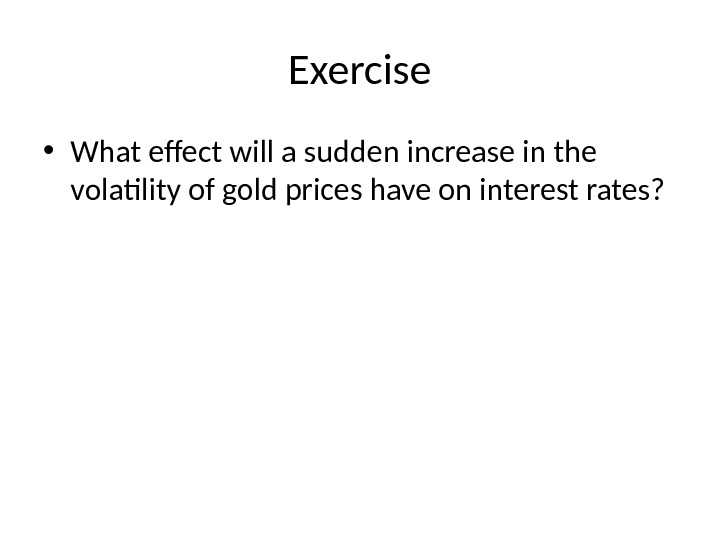
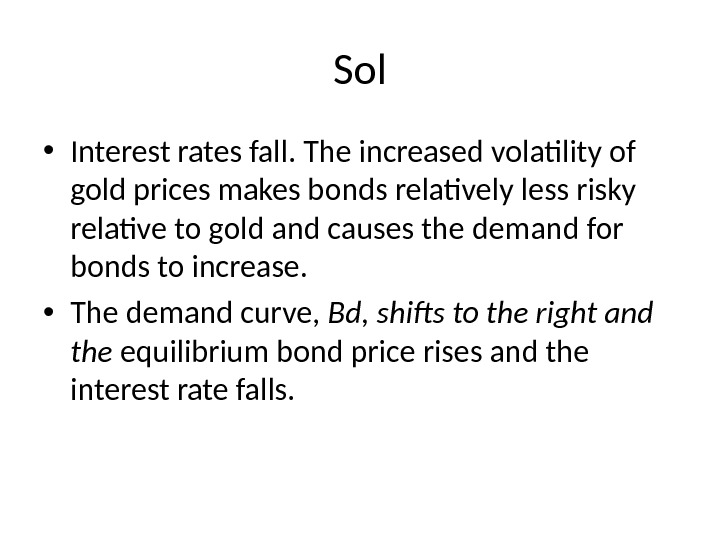
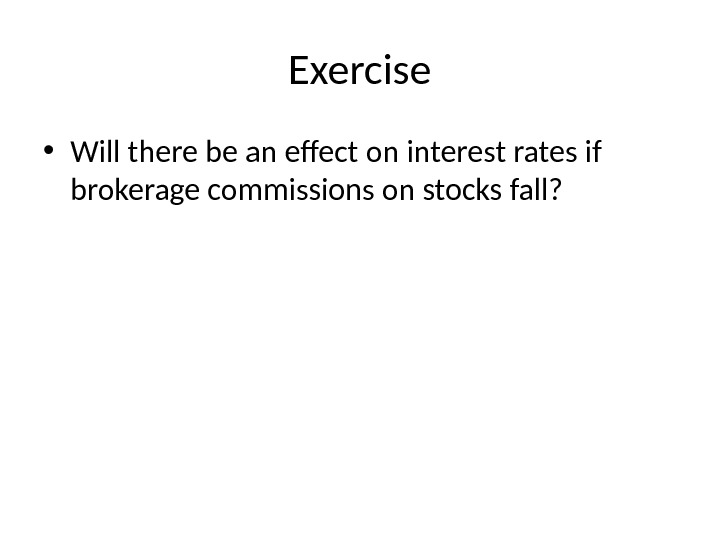
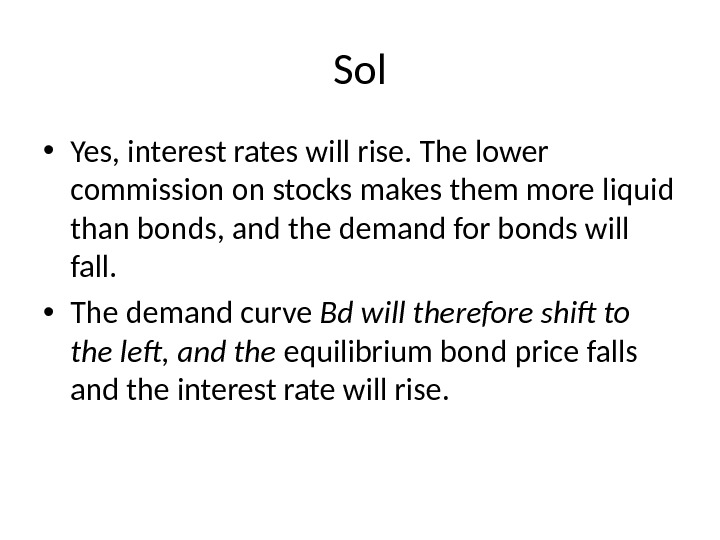
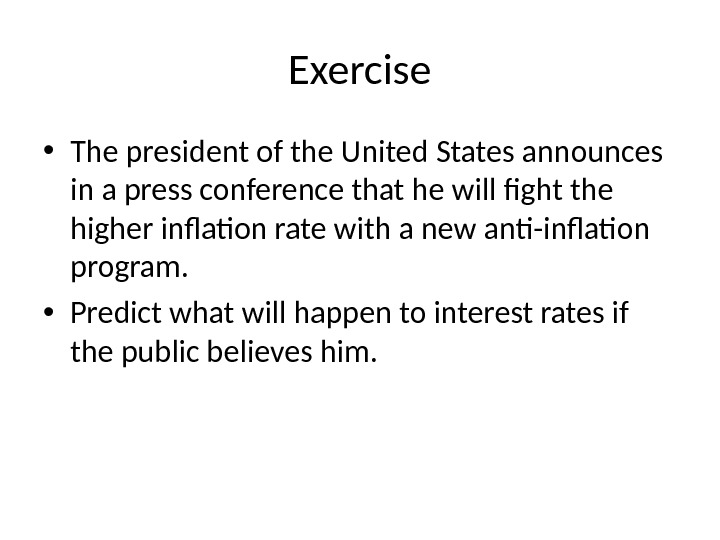
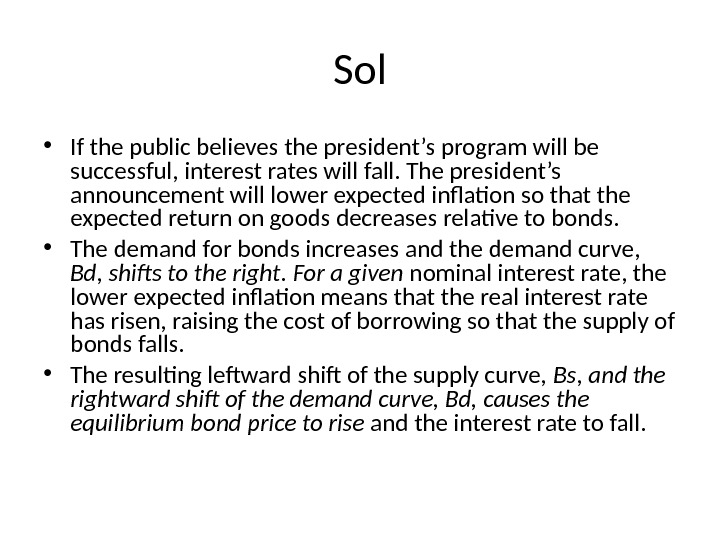
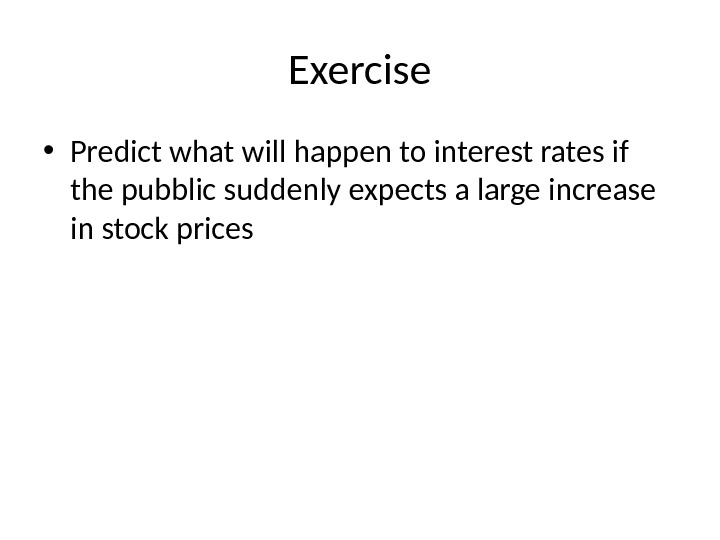
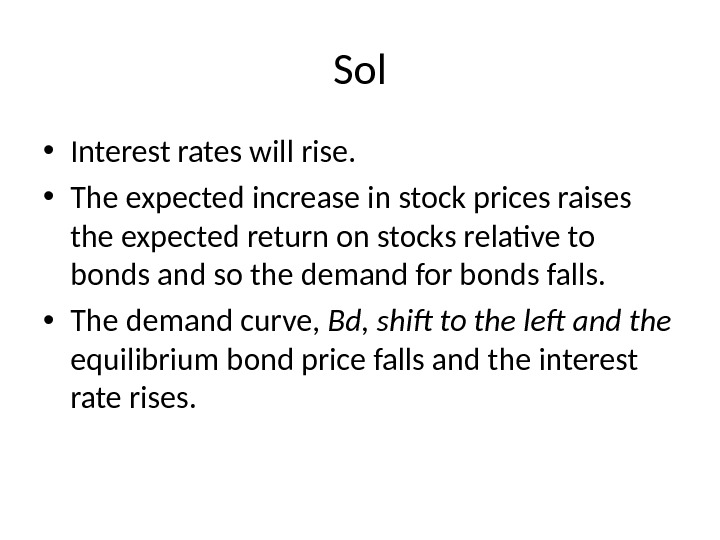
- Размер: 120 Кб
- Количество слайдов: 9
Описание презентации Exercises Federica Ielasi 2010 October 5 Exercise по слайдам
 Exercises Federica Ielasi 2010 October
Exercises Federica Ielasi 2010 October
 Exercise • What effect will a sudden increase in the volatility of gold prices have on interest rates?
Exercise • What effect will a sudden increase in the volatility of gold prices have on interest rates?
 Sol • Interest rates fall. The increased volatility of gold prices makes bonds relatively less risky relative to gold and causes the demand for bonds to increase. • The demand curve, Bd, shifts to the right and the equilibrium bond price rises and the interest rate falls.
Sol • Interest rates fall. The increased volatility of gold prices makes bonds relatively less risky relative to gold and causes the demand for bonds to increase. • The demand curve, Bd, shifts to the right and the equilibrium bond price rises and the interest rate falls.
 Exercise • Will there be an effect on interest rates if brokerage commissions on stocks fall?
Exercise • Will there be an effect on interest rates if brokerage commissions on stocks fall?
 Sol • Yes, interest rates will rise. The lower commission on stocks makes them more liquid than bonds, and the demand for bonds will fall. • The demand curve Bd will therefore shift to the left, and the equilibrium bond price falls and the interest rate will rise.
Sol • Yes, interest rates will rise. The lower commission on stocks makes them more liquid than bonds, and the demand for bonds will fall. • The demand curve Bd will therefore shift to the left, and the equilibrium bond price falls and the interest rate will rise.
 Exercise • The president of the United States announces in a press conference that he will fight the higher inflation rate with a new anti-inflation program. • Predict what will happen to interest rates if the public believes him.
Exercise • The president of the United States announces in a press conference that he will fight the higher inflation rate with a new anti-inflation program. • Predict what will happen to interest rates if the public believes him.
 Sol • If the public believes the president’s program will be successful, interest rates will fall. The president’s announcement will lower expected inflation so that the expected return on goods decreases relative to bonds. • The demand for bonds increases and the demand curve, Bd, shifts to the right. For a given nominal interest rate, the lower expected inflation means that the real interest rate has risen, raising the cost of borrowing so that the supply of bonds falls. • The resulting leftward shift of the supply curve, Bs, and the rightward shift of the demand curve, Bd, causes the equilibrium bond price to rise and the interest rate to fall.
Sol • If the public believes the president’s program will be successful, interest rates will fall. The president’s announcement will lower expected inflation so that the expected return on goods decreases relative to bonds. • The demand for bonds increases and the demand curve, Bd, shifts to the right. For a given nominal interest rate, the lower expected inflation means that the real interest rate has risen, raising the cost of borrowing so that the supply of bonds falls. • The resulting leftward shift of the supply curve, Bs, and the rightward shift of the demand curve, Bd, causes the equilibrium bond price to rise and the interest rate to fall.
 Exercise • Predict what will happen to interest rates if the pubblic suddenly expects a large increase in stock prices
Exercise • Predict what will happen to interest rates if the pubblic suddenly expects a large increase in stock prices
 Sol • Interest rates will rise. • The expected increase in stock prices raises the expected return on stocks relative to bonds and so the demand for bonds falls. • The demand curve, Bd, shift to the left and the equilibrium bond price falls and the interest rate rises.
Sol • Interest rates will rise. • The expected increase in stock prices raises the expected return on stocks relative to bonds and so the demand for bonds falls. • The demand curve, Bd, shift to the left and the equilibrium bond price falls and the interest rate rises.

